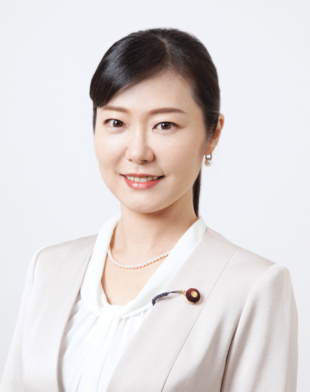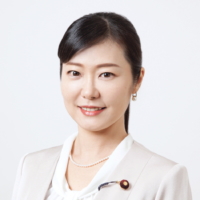In September 2023, I joined the second Kishida Cabinet as minister of state for policies related to children, measures for the declining birthrate, gender equality and women’s empowerment. The core of the Cabinet’s flagship “new capitalism” policy was “women’s economic independence,” and efforts were made to accelerate the promotion of women in companies, improve measures to support work-life balance and correct the gender pay gap.
In Japan, the number of women in decision-making positions is still low. There are particularly few women in the fields of economics and politics. The Global Gender Gap Index announced by the World Economic Forum in 2024 ranked Japan 118th out of 146 countries with a score of 0.663, with high scores in the categories of education and health but low scores in the categories of economics and politics. This is an improvement on the previous year’s score, but further efforts are needed.

In order to develop female leaders, the Japanese government is working to fix long working hours and promote flexible working styles, and is encouraging companies to formulate action plans to achieve their targets for appointing female executives. The effects of these measures are gradually being seen. The ratio of female executives in Japan has gradually increased over the past decade, rising at companies listed on the Prime market from 11.4% in 2022 to 13.4% in 2023. On the other hand, around 10% of the companies listed have no female executives, and the gap between Japan and the average for other Group of Seven and OECD countries remains large.
In this context, the Intensive Policy for Gender Equality and Women’s Empowerment 2023 set a target of increasing the ratio of female executives at leading Prime market-listed companies to at least 30% by 2030, and the Tokyo Stock Exchange established a listing system in October 2023 in response to the Intensive Policy. In addition, the Basic Plan for Gender Equality was revised in December, and new performance targets were set for 2025, including targets of 19% women among the executives of companies listed on the Prime market and zero such companies with no female executives. In order to achieve this goal, it is necessary to steadily build a pipeline for the promotion of women to management and, ultimately, board positions.
In addition to encouraging companies to change their behavior, I think it is also important to foster a social environment that is supportive of women who are active in society. Due to fixed gender-role perception and unconscious biases, women end up shouldering the burden of housework and child care, and as a result are unable to secure sufficient time for work. In some cases, workplaces do not provide women with sufficient opportunities for the education and experience necessary for promotion to managerial positions, regardless of their wishes. We also have to face the reality that women sometimes have no choice but to leave their jobs or switch to irregular employment due to childbirth, child care or their spouse’s transfer.
According to a public opinion survey conducted by the Cabinet Office, when asked about what is necessary for men to more actively participate in housework and child care, the younger the men were, the more they answered that it is necessary to promote understanding among their superiors and colleagues at work, and the less they answered that it is necessary to eliminate the resistance among men themselves. I feel that the attitudes of the younger generation, who will be responsible for the future, are changing.
Although it can’t be achieved overnight, we need to promote the development of a national consciousness that supports women who want to play an active role in society, and expand the use of support systems. I think it is also important for society as a whole to support women so they can draw up and realize the life plans they desire, keeping in mind life events such as marriage and childbirth as well as health issues specific to women.
Ayuko Kato
Born in 1979 in Tsuruoka, Yamagata Prefecture. Graduated from Keio University and worked in a consultancy firm and as a secretary before being elected in the 2014 general election. She is currently serving her third term. From September 2023 to September 2024, she served as the minister of state for child policy, youth empowerment, the declining birthrate and gender equality.



